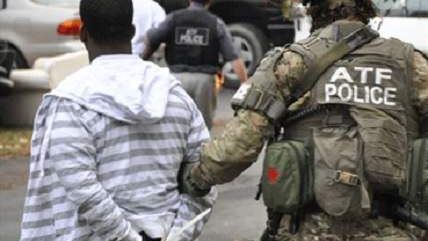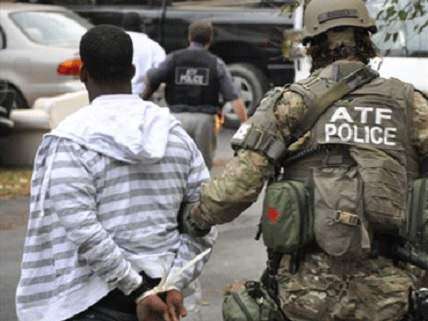From the Drug War and Asset Forfeiture to Police Militarization, Why Does the Left Still Support Federal Control of Local Policing?
At USA Today Glenn Reynolds explains some of the problems with federal control of local police.


Glenn 'Instapundit' Reynolds has a great column in USA Today demolishing the idea—floated by the Obama administration and pushed recently by Al Sharpton—that a nationalized police force would somehow be an improvement, from a civil liberties perspective, over the current situation. The Obama administration's proposal is more tempered—that the feds should use more local police grants to compel local and state police agencies to behave in a certain way.
Just the fact that one day the U.S. will have a president that every person who might say they support this idea will detest (like Bush for half the country or Obama for the other half, more or less) ought to be enough to pinch it in the bud. The federal government does have a role to play in police oversight—an oversight role, not a funding role. Federal grants have helped militarize the police, expand the practice of asset forfeiture, and fuel the drug war. None of those goals were explicitly articulated when the grants were passed—it was about law and order and safety.
And since 2009, the Department of Justice (DOJ) has opened more than 20 pattern and practice investigations into police departments around the country over alleged patterns and practices of civil rights abuse. The Obama administration picked up the pace on these, but the DOJ has been conducting such investigations since the mid-1990s. The feds' ability to investigate local police departments—and, for when you read Reynolds' column, local police departments' ability to investigate misbehavior by local feds—fosters better police departments.
Reynolds offers some other solutions:
Instead, if we're really serious about increasing law enforcement accountability, we should end civil service protections for federal employees, while outlawing public employee unions. We should also abolish governmental immunity for federal, state, and local employees, forcing them to face civil lawsuits for illegal behavior, just as the rest of us must do.
Instead of centralizing law enforcement, we should promote decentralization, and accountability. Accountability is a good thing. Sharpton should try it some time.
Tying federal grants to "best practices" is a slippery slope because that term is vague and hard to define, and federal grants have done a lot to create today's untenable situation in the first place. Aggressively waging the drug war was once a "best practice" the feds encouraged local police departments to adopt. How can the feds try to provide operating guidelines for local law enforcement agencies to respect civil rights when federal law enforcement agencies often operate in a way that disregards those rights?
But perhaps there is a role for federal grants to encourage clear, specific actions by local police departments—by requiring local agencies, for example, to track problem cops or even require cops to carry their own liability insurance if they accept federal money. But these are not the kind of proposals being made. The administration has not articulated its desire to tie specific federal grants to any specific ideas for reform, but rather to tie it to the vague idea of "best practices." Police violence is too bloody of a problem, and the history of federal influence on police issues (from the drug war to militarized police) has been too disastrous to take the "pass it to see what's in it" approach Democrats have taken over the last few years to push laws that feel good but have the devil in their little understood details.


Show Comments (69)